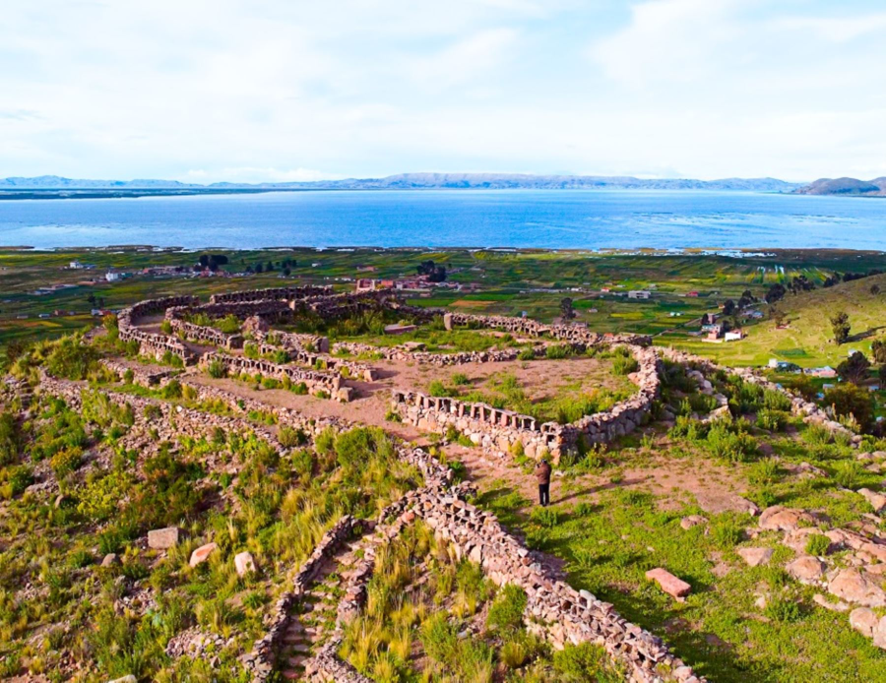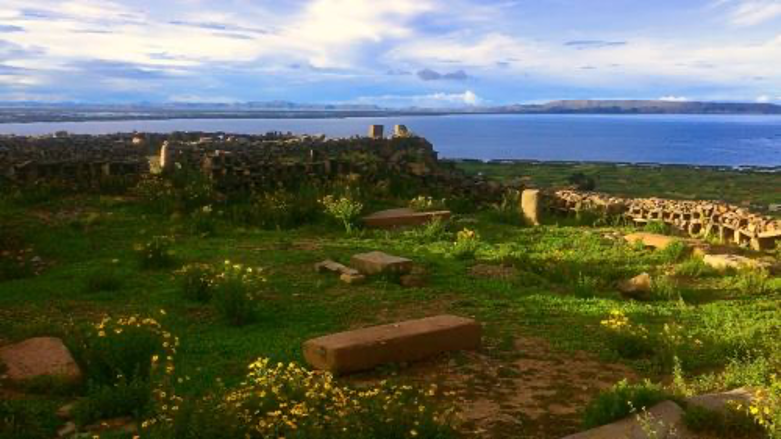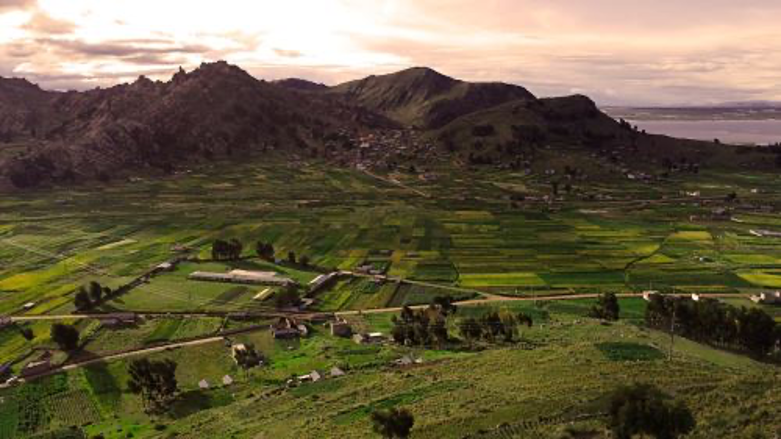
Puno is the Peruvian region with an important potential in tourist resources available to visitors; one of them is the ceremonial center of Inca Tuinuhuiri, located 30 minutes south of Puno City, a mystical and spiritual ceremonial center about which little is known and which is occasionally visited by tourists.
This place is sacred and of high spiritual significance to Ichu inhabitants, who perform offerings to the Pachamama during carnival season, as a sign of gratitude to deities for the good agricultural harvest, good health, and prosperity.

These spiritual practices are part of their customs and traditions, which are kept alive, since their early occupation dating back to the Pukara culture (500 BC – 400 AD), whose evidence is seen in stone blocks located at the top of and around a pyramidal hill.
The ceremonial center of Inca Tunuhuiri is surrounded by sandstone walls, stone blocks carved in human form (monoliths), and terraces. The latter are similar to the structures at the archaeological center of Pucara, located in the province of Lampa.

In addition, the Ichu community has the potential to promote experiential tourism. Its inhabitants are devoted to growing onions —their ancestral economic activity— which is being strengthened with the cultivation of aromatic plants, flowers, and vegetables that are commercialized at markets in the cities of Puno and Juliaca.
Nature and adventure lovers are invited to visit this ceremonial site and renew their spiritual energy. Visitors can enjoy an impressive view of Lake Titicaca from the top of the mountain.
This tourist attraction is complemented by the Qhapaq Ñan route (Inca trail), the Andean road system that connects 5 South American countries: Peru, Bolivia, Chile, Argentina, and Ecuador. On June 21, 2014, it was inscribed on the UNESCO World Heritage list.

This is the section of the road declared as maximum protection area, which links small valleys of Jayllihuaya and Ichu in a 1.77 kilometer route. In addition, it crosses a chain of hills peppered with sandstone rock formations in the form of humans and animals.